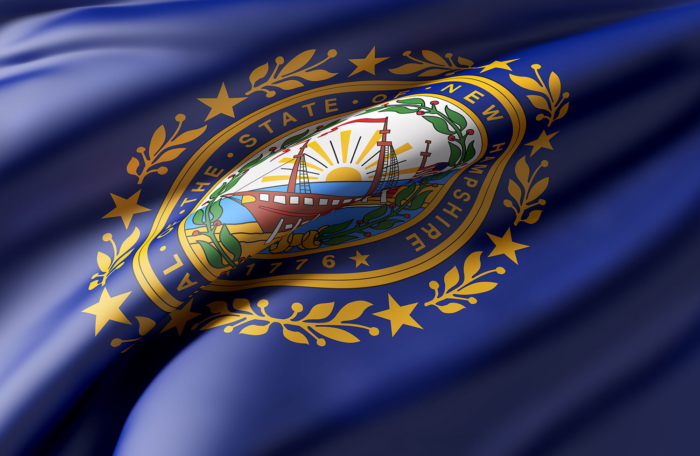When PepsiCo opened the first Pizza Hut in the Soviet Union in 1990, one challenge the company had was convincing Soviet bureaucrats that the cooks didn’t need to be trained chefs.
“This is something the Russians don’t understand,”Andrew Rafalat, Pizza Hut’s regional director for the Soviet Union and Eastern Europe, told The New York Times in 1990. ”You don’t want trained cooks. You want kids off the street. Within a few weeks, they are the best pizza cooks in the world.”
Obviously, New Hampshire isn’t close to being the Soviet Union. (Burlington, Vt., is another story.) But New Hampshire is not as “live free or die” as Granite Staters would like to believe.
Too many laws and ordinances here would look familiar to the Moscow bureaucrats who thought pizza cooks ought to be highly educated, credentialed and government approved.
Recent legislation offers multiple examples.
Current law requires bars and restaurants to apply to the Liquor Commission for permission to serve drinks in common spaces such as sidewalks or parking lots, then also get permission from their local government.
There’s no need for this double approval. Permission from the local government, is enough. Yet it took a global pandemic to convince lawmakers that this requirement should go.
When the pandemic hit, already short-staffed nursing homes couldn’t fill positions to assist nurses because there weren’t enough licensed nursing assistants.
Imagine telling the family of a nursing home patient that you’re sorry, but their loved one has to go with less care because the state has decreed that no care at all is better than care from someone who lacks the most prestigious credential.
It took an emergency order to allow nursing homes to hire and quickly train unlicensed nursing assistants (called temporary health partners) to work under the supervision of licensed nurses.
Senate Bill 155, which a committee of conference approved with amendments on Monday, would fix those and some other burdensome regulatory requirements.
Senate Bill 133, also approved by a committee of conference on Monday, addresses a few other occupational licensing laws. One fix is to open a path to licensure for the temporary health partners allowed in SB 155.
Anyone who worked as a temporary health partner for at least 100 hours as a result of the pandemic would be considered as having completed a nursing assistant training course and would be eligible for licensure as a nursing assistant.
Associate teachers at child day care centers would get a similar break if SB 133 becomes law. The bill would allow 30 hours of “documented life experience” to substitute for 30 hours of “training in child growth and development.”
Also getting a break would be small restaurants and cafes. State law requires licensed food service establishments to have a “Certified Food Protection Manager.” The bill would let the CFPM (that doesn’t sound Soviet at all) for small operations be on call.
The bill also would include psychologists in the list of medical professionals who can engage in telemedicine. (It’s crazy that this wasn’t allowed before.)
Then there are kids’ lemonade stands. Licensing kids’ lemonade stands would seem like a Moscow idea. But local municipal ordinances that require food vendors to obtain permits or licenses usually don’t have an exemption for children selling soft drinks in their own yards.
Though there have been no news stories of police shutting down kids’ lemonade stands in New Hampshire, technically the stands are illegal if ordinances don’t specifically exempt them.
That’s why House Bill 183 would create a state-level exemption for children age 14 and younger who sell soft drinks from their own property. It establishes under state law that the only permission kids need to set up a lemonade stand is from their parents. (The House concurred with the Senate version last week and awaits Gov. Chris Sununu’s signature.)
These small changes would make New Hampshire a bit freer by slightly reducing the level of government permission needed for certain commercial practices. Other bills have addressed other areas where the pandemic revealed certain regulations to be entirely unneeded, even harmful.
And yet, as this legislative session winds down, it’s remarkable how little has changed. The state of emergency is over. The pandemic is receding. But the state’s thick net of rigid regulations remains largely intact.
Most changes were made on the margins. There was no comprehensive rewriting of occupational licensing laws or business regulations. Even after a wave of restaurant closures, lawmakers couldn’t bring themselves to allow cocktails to go. Massachusetts will legalize to-go restaurant cocktails before New Hampshire does.
State laws and local ordinances remain run through with the presumption that people can’t figure out how to engage in economic activity safely unless they first obtain government permission and government-mandated training.
A lot of good changes have been made. But we still can’t let go of the notion that 424 legislators should tell the pizza parlor how to make pizza.







